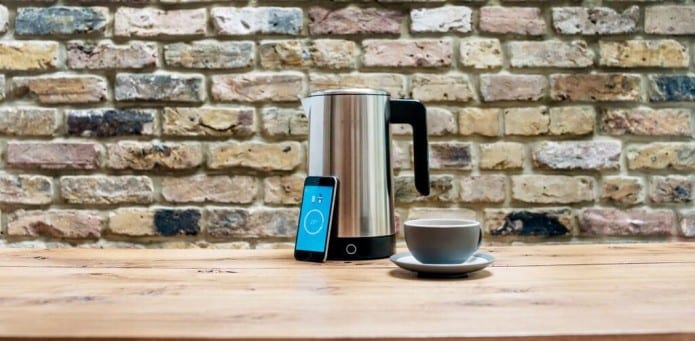A new ‘smart kettle’ can be easily hacked to take over your wifi network
With security being a paramount concern, hackers continue to improve their methods of sophisticated attacks which have branched out to smart devices like smartphones and smart appliances. According to researchers, hackers can now take control of a user’s Wi-Fi network through a smart kettle that is known as iKettle. This latest smart device retails for £99.99 and is manufactured by British company known as Smarter.
While the features of iKettle saves the user several minutes of their precious time by producing their hot beverage, it does not necessarily mean that it is secure as well. According to UK-based security consulting group Pen Test Partners; they have been quite vocal against the security layers of iKettle. The individuals belonging to the company have stated that the smart appliance acts a wireless bridge for hackers who want to take control of the user’s Wi-Fi network.
Another issue that the consulting group pointed out that even with the successor of the original iKettle, iKettle 2.0 has not managed to keep hackers at bay, which will risk thousands of users and their Wi-Fi networks. This is not the only thing that users should be concerned about. If hackers can find a way to access wireless networks, then they will eventually find a way to gain access to thousands of user’s mobile devices ranging from smartphones and tablets.
Android is being severely criticized for possessing a huge security problem, particularly those devices that are running older versions of Google’s mobile operating system. However, not all things need to have disastrous consequences, since there are solutions that can prove to be an effective deterrent for hackers. For example, changing to router’s access panel password is a great start to prevent hackers gaining unauthorized access to the wireless network.
Using a combination of letters, numbers and symbols is also a clever way to keep hackers at bay since cracking such a combination is a greater ordeal for such individuals. Last, but definitely not least, avoid keeping smart appliances and other products based on the ‘Internet of Things’ switched on if you are not going to use them. Keep their usage frequency to a minimum level, at least until their level of security has significantly improved.

